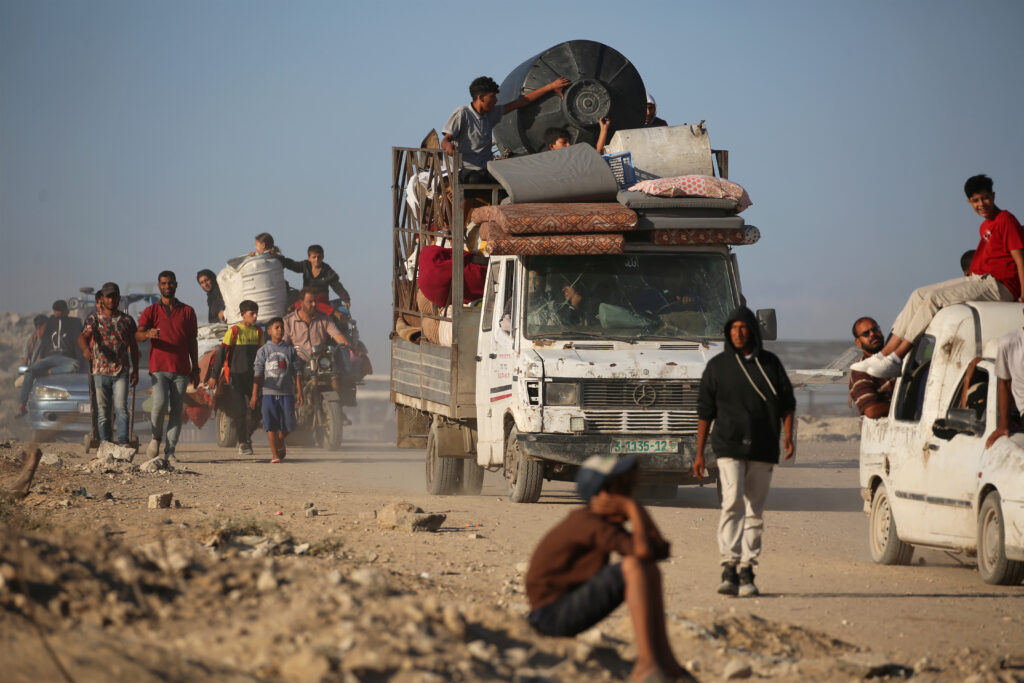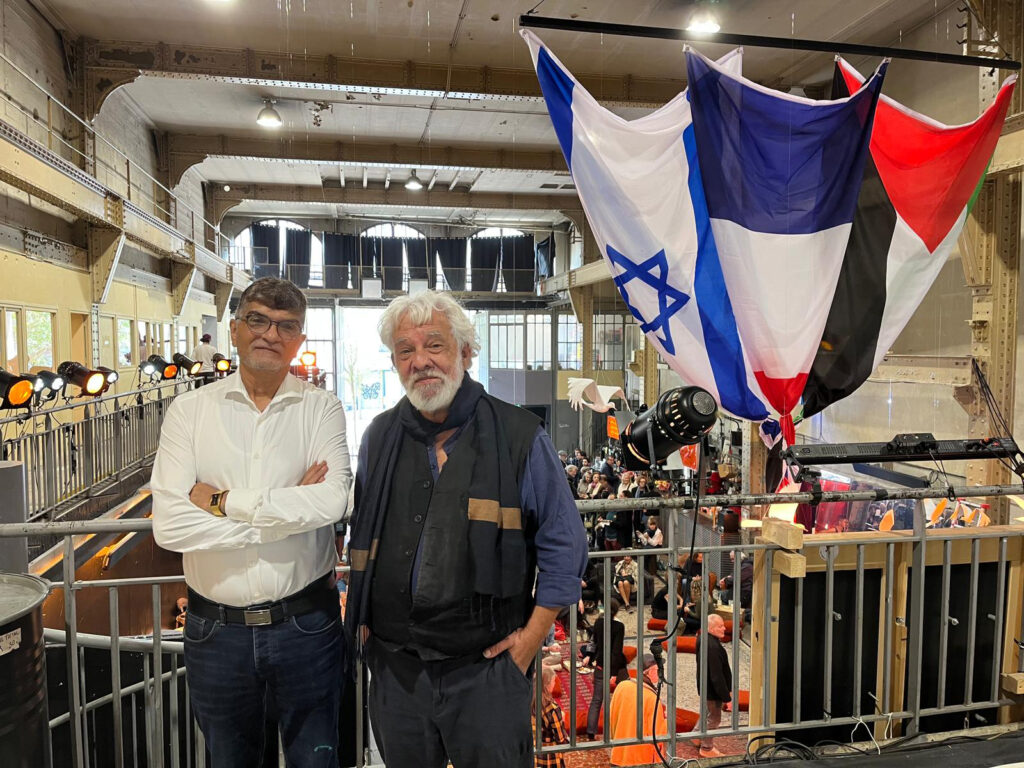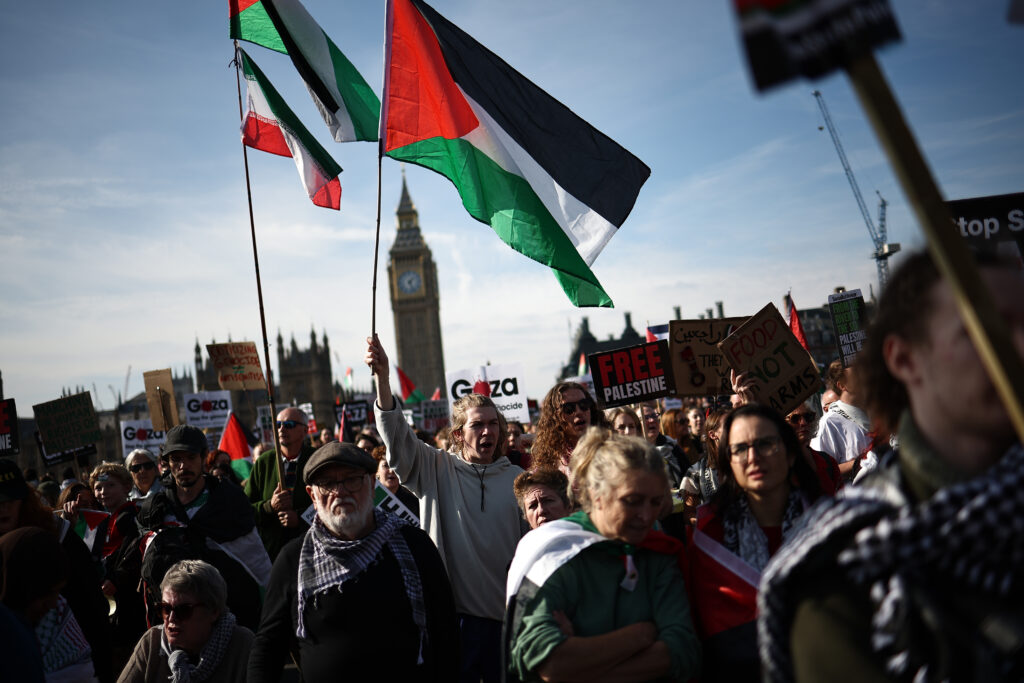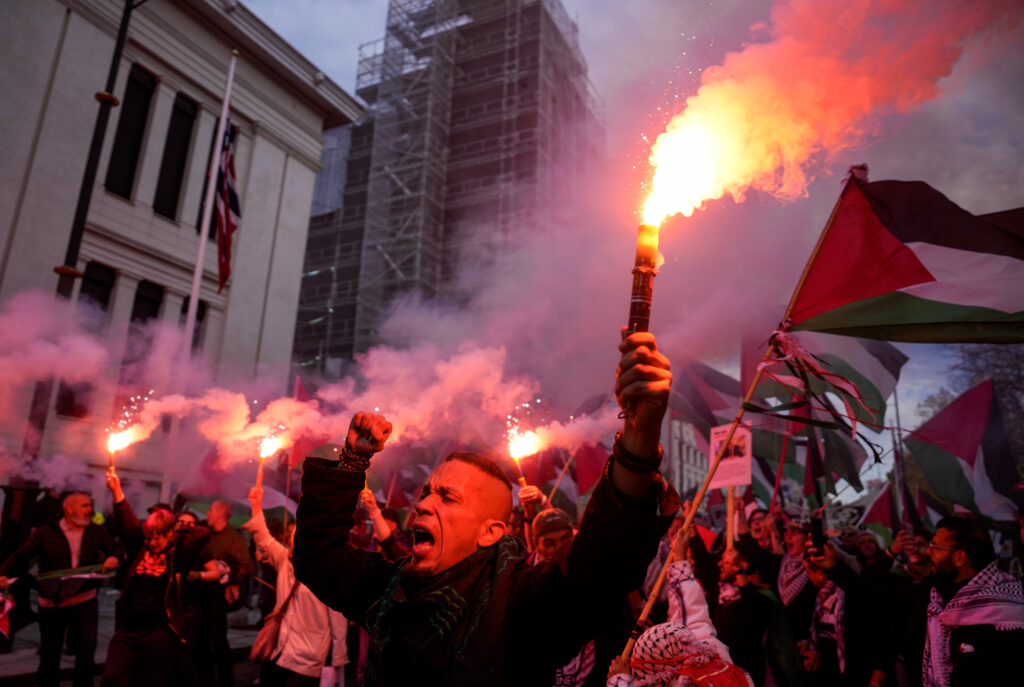Hamas says Israeli hostages to be freed from Gaza before Trump peace summit
Hamas will begin releasing Israeli hostages held in Gaza on Monday morning, a top official from the Palestinian militant group told AFP, before US President Donald Trump chairs an international summit in Egypt on his peace plan for the region.As part of the deal’s first phase, Hamas, whose deadly attacks on Israel on October 7, 2023 sparked the conflict, will free the captives, 20 of whom Israel believes are still alive, in exchange for nearly 2,000 Palestinian prisoners.”According to the signed agreement, the prisoner exchange is set to begin on Monday morning as agreed,” Hamas official Osama Hamdan told AFP in an interview Saturday.Trump and Egyptian President Abdel Fattah al-Sisi will then chair a summit of more than 20 countries in the Red Sea resort of Sharm el-Sheikh on Monday afternoon, the Egyptian presidency announced.The meeting will aim “to end the war in the Gaza Strip, enhance efforts to achieve peace and stability in the Middle East, and usher in a new era of regional security and stability”, it said.UN Secretary-General Antonio Guterres has said he will attend, as has Britain’s Prime Minister Keir Starmer, his counterparts from Italy and Spain, Giorgia Miloni and Pedro Sanchez, and French President Emmanuel Macron.There was no immediate word on whether Israel’s Prime Minister Benjamin Netanyahu will be there while Hamas said it would not take part as it had “acted principally through… Qatari and Egyptian mediators” during talks, Hamas political bureau member Hossam Badran said.Despite the apparent breakthrough, mediators still have the tricky task of securing a longer-term political solution that will see Hamas hand in weapons and step aside from governing Gaza.Badran said the second phase of Trump’s plan “contains many complexities and difficulties” while one Hamas official, speaking on condition of anonymity, said disarming was “out of the question”.- Multinational force -Under the Trump plan, as Israel conducts a phased withdrawal from Gaza’s cities, it will be replaced by a multi-national force from Egypt, Qatar, Turkey and the United Arab Emirates, coordinated by a US-led command centre in Israel.On Saturday, US Central Command (CENTCOM) chief Admiral Brad Cooper, Trump’s Middle East envoy Steve Witkoff and Trump’s son-in-law Jared Kushner visited Gaza, where hundreds of thousands of Palestinians were again on the move, returning to their devastated homes.Witkoff, Kushner and Trump’s daughter Ivanka then went on to Tel Aviv to attend a gathering with the families of the remaining Israeli hostages held in Gaza, where crowds shouted “Thank you Trump”.Einav Zangauker, whose son Matan is one of about 20 hostages believed to still be alive, said: “We will continue to shout and fight until everyone is home.””We finally feel hope, but we cannot and will not stop now,” added Zairo Shachar Mohr Munder, whose uncle Abraham was abducted during the Hamas attack and his body recovered in August.Hamas has until noon on Monday to hand over 47 remaining hostages — living and dead — from the 251 abducted in the attack two years ago, which led to the deaths of 1,219 people, most of them civilians. The remains of one more hostage, held in Gaza since 2014, are also expected to be returned.In exchange, Israel will release 250 prisoners, including some serving life sentences for deadly anti-Israeli attacks, and 1,700 Gazans detained by the military since the war broke out.The Israeli prison service said Saturday it had moved the 250 national security detainees to two prisons ahead of the handover. – ‘Stood and cried’ -More than 500,000 Palestinians had returned to Gaza City by Saturday evening, according to Gaza’s civil defence agency, a rescue service operating under Hamas authority.”We walked for hours, and every step was filled with fear and anxiety for my home,” Raja Salmi, 52, told AFP.When she reached the Al-Rimal neighbourhood, she found her house utterly destroyed.”I stood before it and cried. All those memories are now just dust,” she said.Drone footage shot by AFP showed whole city blocks reduced to a twisted mess of concrete and steel reinforcing wire.The walls and windows of five-storey apartment blocks had been torn off and now lay choking the roadsides as disconsolate residents poked through the rubble.The UN’s humanitarian office says Israel has allowed agencies to start transporting 170,000 tonnes of aid into Gaza if the ceasefire holds.- ‘Ghost town’ -Men, women and children navigated streets filled with rubble, searching for homes amid collapsed concrete slabs, destroyed vehicles and debris.Sami Musa, 28, returned alone to check on his family’s house.”Thank God… I found that our home is still standing,” Musa told AFP.”It felt like a ghost town, not Gaza,” Musa said. “The smell of death still lingers in the air.”Israel’s campaign in Gaza has killed at least 67,682 people, according to the health ministry in the Hamas-run territory, figures the United Nations considers credible.The data does not distinguish between civilians and combatants but indicates that more than half of the dead are women and children.burs/dc/phz/dhw




